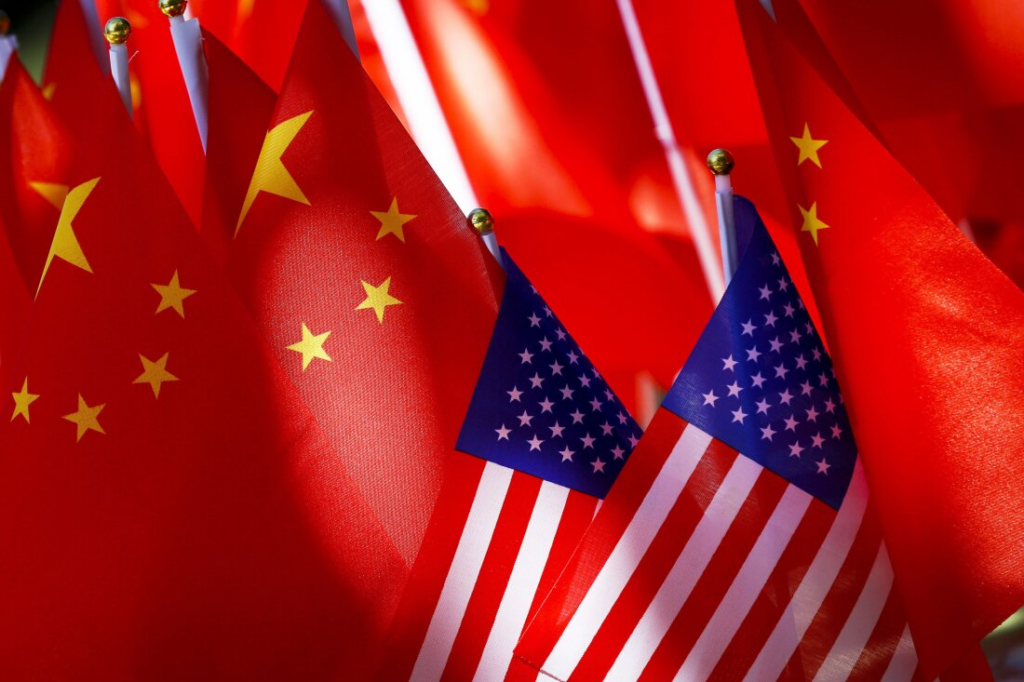The Wall Street Journal Report
Recent reports from the Wall Street Journal have unveiled a chilling reality: Chinese state-backed hackers possess the tools to disrupt critical U.S. infrastructure. These vulnerabilities include key systems like ports and power grids, essential to daily American life. Cyber experts warn that these capabilities could be weaponized to create chaos, influence U.S. policies, or gain a strategic edge in global conflicts, particularly involving Taiwan.
The WSJ findings indicate the hackers’ advanced infiltration methods. Their ability to bypass cybersecurity measures raises significant concerns about the resilience of U.S. systems. This revelation underscores the growing need to address cyber vulnerabilities before they become catastrophic.

Insights from the NSA
The National Security Agency (NSA) has also weighed in on this pressing issue. The NSA’s assessments reveal that China is laying the groundwork for cyber operations designed to escalate during geopolitical crises. A primary focus of these activities revolves around Taiwan, a region of strategic interest for both the U.S. and China.
According to NSA experts, Chinese hackers are not merely engaging in espionage. Their strategies include potential sabotage, designed to disrupt infrastructure and sow panic during critical moments. Such operations could paralyze communication networks, energy supplies, and even military systems, giving China an upper hand during conflicts.
Jake Sullivan’s Warning
In the fall of 2023, U.S. National Security Adviser Jake Sullivan addressed the severity of the cyber threat in a confidential briefing. High-ranking executives from the telecom and tech sectors attended this urgent meeting. Sullivan revealed that Chinese hackers had already infiltrated critical parts of U.S. infrastructure. This intrusion posed an immediate risk to national security.
Sullivan’s briefing highlighted the penetration of U.S. telecom networks. This revelation painted a grim picture of how deeply hackers had embedded themselves. Such infiltration could allow these actors to control communications, impacting both civilian and military operations during a crisis. The meeting emphasized the need for immediate action to secure vulnerable systems.
A National Security Priority
The infiltration of U.S. infrastructure by Chinese state-backed hackers has far-reaching implications for national security. The ability to disrupt ports, power grids, and communication networks places the nation’s stability at risk. Cyber attacks could immobilize critical services, leaving the U.S. vulnerable to strategic exploitation.
This issue goes beyond the digital realm. Disruptions to critical systems could trigger widespread panic, hinder economic activity, and undermine public trust in government institutions. These potential outcomes make the development of robust cybersecurity measures a top priority for national security planners.

Tensions in U.S.-China Relations
Cyber activities are becoming a key battleground in the broader U.S.-China rivalry. These cyber incursions highlight the increasing sophistication of China’s cyber capabilities. They also reflect the shifting dynamics of modern conflict, where digital warfare complements traditional military strategies.
The ongoing cyber threat further complicates diplomatic relations between the two nations. The U.S. must balance its responses to these incursions while managing other geopolitical tensions, including trade negotiations and military posturing around Taiwan. These challenges underscore the interconnected nature of cyber threats and international diplomacy.
Public and Private Sector Collaboration
Addressing these cyber threats requires a united effort between the government and private sector. Infrastructure operators, tech companies, and cybersecurity firms must work together to strengthen defenses. Public-private partnerships are essential to identifying vulnerabilities and deploying effective countermeasures.
The private sector’s role is particularly critical, as many of the systems targeted by hackers are owned and operated by private entities. These companies must invest in advanced cybersecurity solutions, share threat intelligence with government agencies, and adopt best practices for network security. Meanwhile, the government must provide resources and expertise to support these efforts.
Enhancing Cyber Resilience
The U.S. must prioritize the development of resilient cyber defenses. This includes upgrading outdated systems, implementing real-time threat monitoring, and training personnel to respond effectively to cyber incidents. Investments in advanced technologies, such as artificial intelligence and machine learning, can bolster detection and response capabilities.
Deterrence and Response
A robust deterrence strategy is also necessary to discourage further cyber incursions. This could include the development of offensive cyber capabilities to retaliate against state-sponsored hackers. Clear consequences for cyber aggression, backed by international coalitions, can signal to adversaries that such actions will not go unpunished.

Protecting Critical Infrastructure
Securing critical infrastructure requires a comprehensive approach. Risk assessments must identify weak points in energy grids, transportation systems, and communication networks. Protective measures, such as firewalls, encryption, and multi-factor authentication, must be implemented across all levels of infrastructure.
Regular cybersecurity audits can ensure compliance with best practices and identify areas for improvement. By staying ahead of emerging threats, the U.S. can minimize the risk of devastating cyber attacks.
The threat posed by Chinese state-backed hackers is a wake-up call for the U.S. The infiltration of critical infrastructure demonstrates the vulnerabilities of even the most advanced systems. Addressing this challenge requires a proactive and coordinated approach.
National security agencies, private companies, and international partners must collaborate to mitigate risks and strengthen defenses. Cybersecurity must remain a top priority in the face of evolving threats. By investing in resilience and deterrence, the U.S. can protect its critical systems and maintain its position on the global stage.
Our Visitor






 Users Today : 33
Users Today : 33


